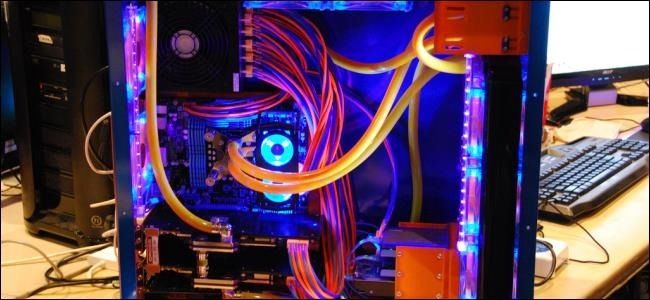In the age of high-powered processors and graphics cards, computer overheating is a looming threat to the performance and lifespan of our beloved machines. Fear not, for we have come armed with a myriad of cooling strategies to help you combat this enemy, keeping your system running smoothly and efficiently. Join us as we delve into the world of cooling solutions and learn how to beat computer overheating once and for all.

Choosing the Right Cooling System for Your Computer
When it comes to keeping your computer running smoothly, choosing the right cooling system is essential. Overheating can cause serious damage to your system, resulting in slower performance and potential hardware failures. To beat computer overheating, consider these cooling strategies:
Air Cooling
Air cooling systems use fans to dissipate heat from your computer’s components. They are affordable and easy to install, making them a popular choice for many users. However, they can be noisy and may not be as efficient as other cooling methods.
Liquid Cooling
Liquid cooling systems use a liquid coolant to transfer heat away from your computer’s components. This method is more effective at dissipating heat than air cooling, resulting in lower temperatures and quieter operation. However, liquid cooling systems can be more expensive and require regular maintenance to prevent leaks.
Maximizing Airflow: Tips and Tricks to Prevent Overheating
When it comes to keeping your computer cool and preventing overheating, maximizing airflow is key. Here are some tips and tricks to help you beat computer overheating:
- Clean out dust: Dust buildup can restrict airflow and cause your computer to overheat. Regularly clean out dust from fans, vents, and filters to ensure proper airflow.
- Optimize cable management: Poor cable management can obstruct airflow inside your computer case. Organize and route cables efficiently to promote better airflow.
- Upgrade cooling systems: Consider upgrading your cooling systems with additional fans, liquid cooling, or heat sinks to improve airflow and keep your computer running cool.
| Tip: | Use a cooling pad for laptops to help dissipate heat and improve airflow. |
The Importance of Regularly Cleaning Your Computer’s Cooling System
Regularly cleaning your computer’s cooling system is a crucial aspect of maintaining the overall health and performance of your device. Over time, dust and debris can accumulate in the cooling system, hindering its ability to effectively dissipate heat. This build-up can lead to overheating, which can cause damage to internal components and ultimately shorten the lifespan of your computer.
By keeping your cooling system clean, you can prevent overheating and ensure that your computer operates at peak efficiency. This simple maintenance task can help to extend the life of your device and save you money on costly repairs or replacements. Additionally, a clean cooling system can also improve the overall performance of your computer, allowing it to run smoother and faster.
To effectively clean your computer’s cooling system, follow these simple steps:
- Power off your computer and unplug it from the power source
- Open the case to access the cooling system
- Use a can of compressed air to blow out dust and debris from the fans and vents
- Carefully remove any stubborn dust or dirt with a soft brush or cotton swab
By incorporating regular cleaning into your computer maintenance routine, you can ensure that your device remains cool, efficient, and reliable for years to come.
Innovative Cooling Solutions for High-Performance Computers
When it comes to keeping your high-performance computer running smoothly, overheating can be a major concern. Thankfully, there are a variety of innovative cooling solutions available to help you beat the heat and avoid damaging your valuable equipment.
One popular option is liquid cooling, which uses a closed-loop system to circulate coolant through your computer’s components, dissipating heat more efficiently than traditional air cooling methods. This can help maintain optimal performance levels, even under heavy workloads.
Another cutting-edge cooling strategy is the use of advanced thermal paste, which helps improve the transfer of heat between your computer’s components and its cooling system. By ensuring more effective heat dissipation, you can minimize the risk of overheating and extend the lifespan of your hardware.
In conclusion, it’s important to implement effective cooling strategies to prevent your computer from overheating. By following the tips and techniques mentioned in this article, you can ensure that your device stays cool and operates efficiently. Remember, a little bit of proactive cooling can go a long way in extending the life of your computer. Stay cool!

